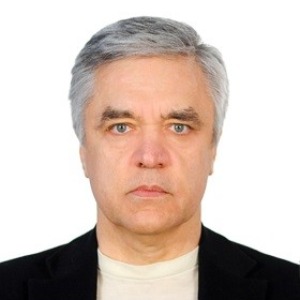Title : Personalized and Precision Oncology (PPO) to be set up via precision oncology strategy for cancer care team: Developing targeted lung cancer therapy & advancing personal-ized cancer care
Abstract:
Lung cancer is one of the leading causes of cancer death among both men and women making up almost 25% of all cancer deaths. A comprehensive molecular tumor analysis in-tegrating a combination of NGS methods offers the best chance for personalizing cancer care, enlarging the scope of therapy choices and offering potential new options for challeng-ing cases for instance metastatic tumors, rare cancer types and cancers of unknown primary. cutting edge bioinformatics pipelines integrate the multiple data levels to construct big data and data sets and to generate a personalized tumor report. One key asset of this solution is the use of whole transcriptome data as a booster enhancing the sensitivity and information content of the diagnostic, predictive and prognostic tests. Up to now personalized and precision oncology has been largely relying on identifying key mutations in the tu-mor DNA by means of panel sequencing a meth-od scanning only designated cancer gene targets. Though the panel approach helps to orientate therapy choices for particular cancer types many “hard to treat” tumors remain in need of more effective diagnostic solutions.
PPM offers a transformative solution by tailoring screening protocols to individual risk pro-files through the integration of clinical, genetic, environmental and radiological data. emerging tools, such as risk prediction models, radiomics, bioinformatics and liquid biopsies, enhance the accuracy of screening, allowing for the identification of high-risk individu-als who may not meet conventional criteria. Polygenic risk scores (PRSs) and molecular bi-omarkers further refine stratification, enabling more personalized and effective screening intervals. Incorporating these innovations into clinical workflows, alongside shared decision-making (SDM) and robust data infrastructure, represents a paradigm shift in lung cancer prevention to secure the health of pre-cancer persons at risk. The identification of novel bi-omarkers that could be used in pre-early (subclinical) diagnosis is urgently needed, especial-ly for guiding initial therapy and predicting relapse or drug resistance following the admin-istration of novel targeted therapies.
Meanwhile, personalized treatment choices especially for non-small cell lung cancer (NSCLC) the most common type require careful consideration of the tumor’s genetic profile. NSCLC’s high mutational load makes NGS and GWAS testing essential for identifying muta-tions and selecting targeted therapies. Recent advances have identified key genetic muta-tions that drive tumor growth including those in the EGFR, KRAS, ALK, and MET genes ac-counting for around 80 % of NSCLC. The advent of targeted therapies such as TKIs and mono-clonal antibodies (Abs) have revolutionized cancer treatment by specifically inhibiting onco-genic pathway. However despite those advancements treatment outcomes remain subopti-mal due to intrinsic heterogeneity of cancers and the development of resistance mecha-nisms.
Even with remarkable achievement in the management of lung cancer, especially NSCLC, problems persevere in achieving prolonged remission and enhancing overall survival. Tumor complexity and acquired resistance mechanisms generally hinders the efficiency of these treatment strategies, resulting to disease progression. customization of cancer therapies through pharmacogenomics is hindered by tumor adapatability and resistance, limited prog-nostic biomarkers and suboptimal monotherapies. The latter necessitates biomarker development and combination therapies. In general, physicians and cancer experts encounter an immense number of challenges in providing the optimal treatment regimen for the individual given the sheer complexity of clinical aspects such as tumor molecular profile tumor mi-croenvironment, expected adverse events, acquired or inherent resistance mechanisms the development of metastases, the limited availability of biomarkers and the choice of combi-nation therapy.
Currently, all patients with suspicious lung cancer and non-smokers with other histologies should be tested for EGFR mutations, ALK rearrangements and ROS1 fusion. For instance when harbouring an EGFR sensitising mutation, ALK or ROS1 rearrangements or BRAF muta-tions, patients with advanced NSCLC will receive bioguided therapy as first-line treatment (i.e. gefinitib, erlotinib or afatinib) or ALK/ROS1 TKI (crizotinib) or BRAF inhibitors (dabraf-enib and trametinib), respectively.
In this context along with the above-mentioned, theranostics is an innovative concept of personalized therapy that focuses on both the accurate selection of lung cancer patients and providing them with targeted radioligand cancer therapy to improve their prognosis. The in-tegrated value chain of PPM-related oncology tools equips theranostics programs with state-of-the-art solutions at every step of the theranostics care pathway.
PPM has the potential to tailor therapy towards the oncogenic drivers of the lung tumor and modulate the tumor immune environment, whilst aiming to optimize tumor response and thereby taking into account the therapy-induced toxicities for each specific patient.Lung cancer is no longer considered a single disease entity and is now being subdivided into molecular subtypes with dedicated targeted and chemotherapeutic strategies. Given the heterogeneity and complexity of lung cancer treatment with respect to histology, tumor stage, and genomic characterization, mind mapping has been developed as one of many tools, which can assist physicians in this era of PPM.
Nowadays, taking into account the presence of different genetic changes in cancer patients or pre-cancer persons-at-risk we would aim at making the need for PPO much greater to get the lung cancer patients cured! in this context, functioning approach named cancer care team or trans-disciplinary care team, clinical practice and process, evidence-based deci-sion?making, and smart targeted therapies are becoming crucial! The latter integrates mul-tidisciplinary experts and develops real?time therapeutic strategy based on clinical phe-nomes and translational genomics and related OMICS technologies. That approach provides comprehensive, whole?process and personalized diagnosis and treatment services for patients with complex lung cancer or complex drug resistance progression provides guidance for further adjustment of drug use and establishes a multidisciplinary cooperative team, improves the quality of clin-ical diagnosis and treatment and optimizes the process of medical services.



